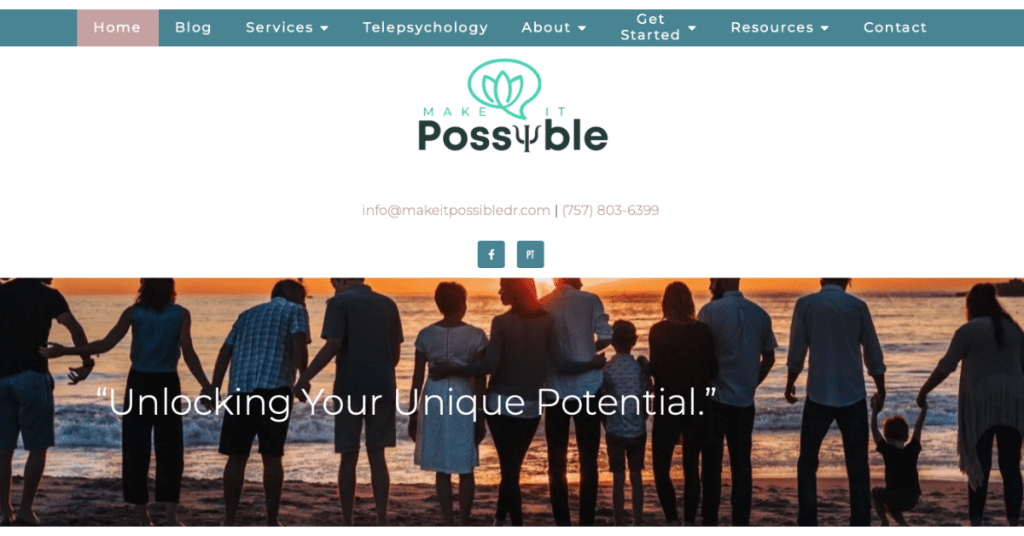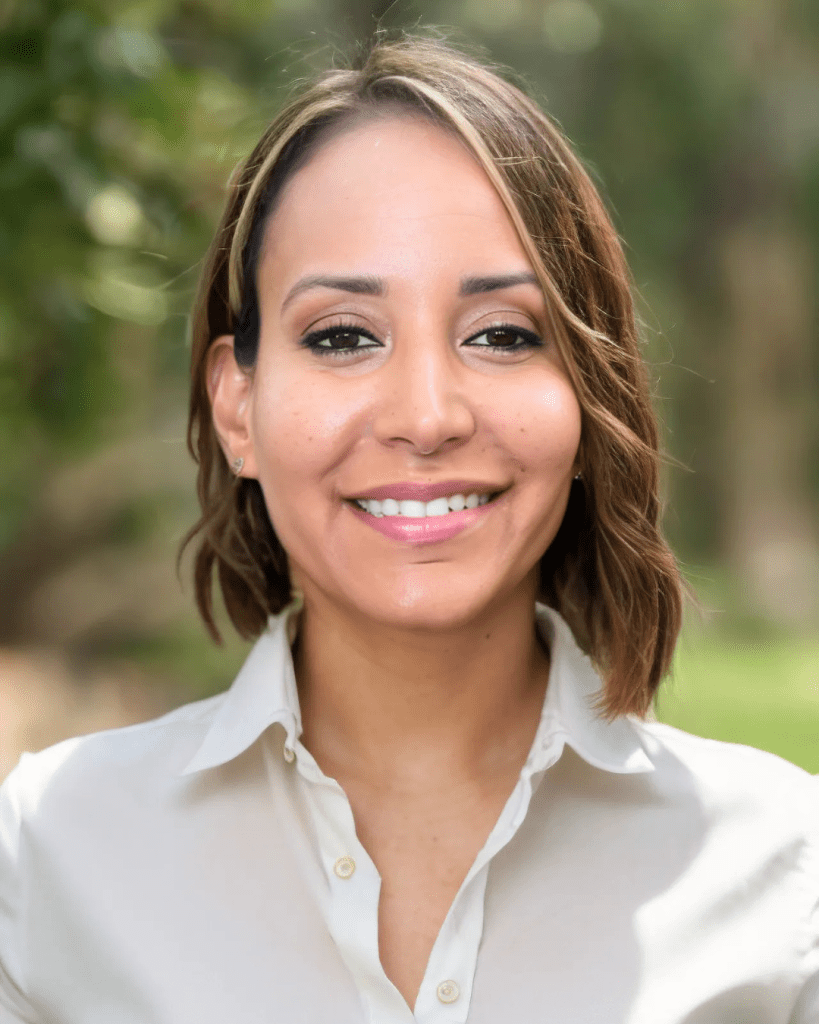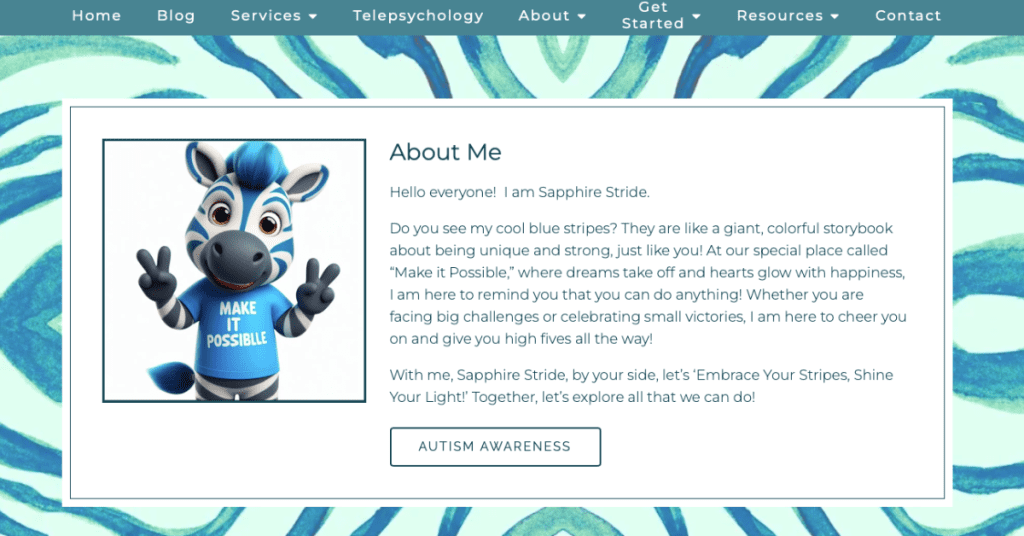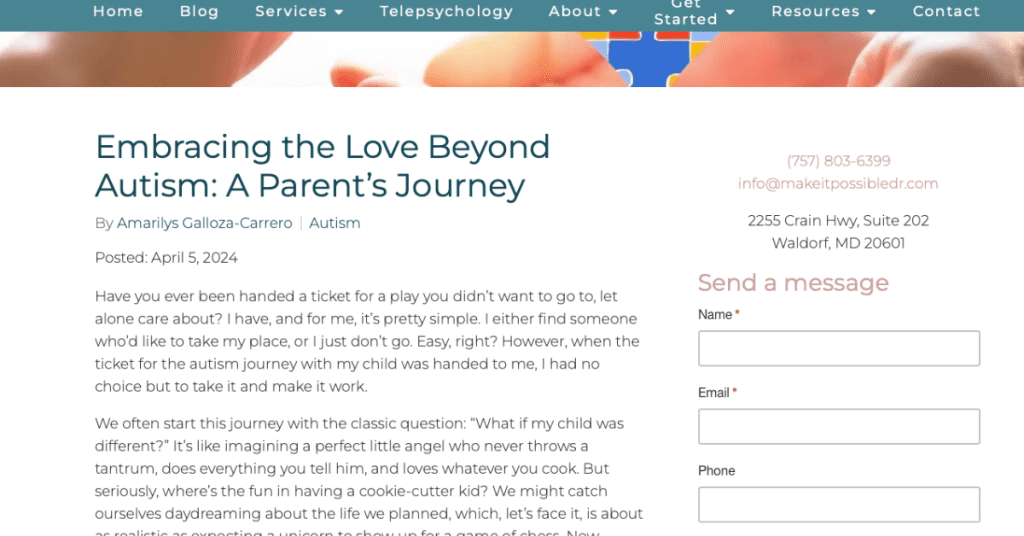Dr. Amarilys Galloza’s journey into the field of clinical psychology is more than just a professional endeavor—it’s a deeply personal mission shaped by her upbringing, experiences, and dedication to underserved populations. As a leading expert in the intersection of mental health, multilingualism, the Latinx community and disability services, particularly for the deaf and autistic communities, Dr. Galloza’s work reflects her commitment to breaking barriers and expanding access to crucial resources. Her story is one of perseverance, compassion, and unwavering resolve to make a difference in the lives of those who are often overlooked.
Early Inspiration and Family Influence
Dr. Galloza’s passion for understanding human behavior and its underlying motivations can be traced back to her childhood. Growing up in Puerto Rico, she was deeply influenced by her father, a math teacher who went beyond his role as an educator to create opportunities for underprivileged children in his community. He initiated a program that allowed students to participate in extracurricular activities like volleyball, but only if they performed well academically.
This initiative had a profound effect on many children, some of whom went on to pursue higher education and improve their life circumstances.
“My dad always taught me that sometimes a person just needs an opportunity,” Dr. Galloza reflected. “That really shaped my vision of how people’s lives could change with the right support.”
Her early fascination with understanding why people behave the way they do eventually led her to clinical psychology. Dr. Galloza wanted to explore how different circumstances—such as poverty, limited access to resources, or family dynamics—affect behavior.
“I was always curious about what could have happened differently if someone had been provided more support or had different opportunities,” she said.

An Introduction to the Deaf Community
Dr. Galloza’s journey into working with the deaf community was sparked by an encounter with a trailblazer in the field—Alice González, the first deaf individual to complete a bachelor’s degree in education at the University of Puerto Rico. González’s achievement was monumental in a country with significant barriers for deaf individuals in education and mental health services. This meeting opened Dr. Galloza’s eyes to the hindrances faced by the deaf community, particularly the lack of accessible mental health services.
Determined to make a difference, she shifted her research focus to this underserved population. However, she quickly realized Puerto Rico lacked the resources to support her ambitions.
“I was told that I couldn’t conduct the type of research I wanted to do for the deaf community because there was no one in Puerto Rico who could help me,” she recalled.
Undeterred, Dr. Galloza made the life-changing decision to leave Puerto Rico and pursue her studies in the United States.
Overcoming Language Barriers and Pursuing Research Excellence
Dr. Galloza’s determination to serve the deaf community led her to Gallaudet University, a premier institution for the education of deaf and hard-of-hearing individuals. However, her journey was far from easy. When she arrived at Gallaudet, Dr. Galloza didn’t speak English fluently and had no knowledge of American Sign Language (ASL), the primary mode of communication at the university. This situation mirrored the experience of many deaf individuals navigating a world dominated by hearing people—a reality Dr. Galloza would come to understand intimately.
“I arrived at Gallaudet and experienced what a deaf individual faces every day in a hearing world,” she said. “I couldn’t communicate with people, and many assumed I wasn’t capable because of the language barrier.”
Despite the challenges, she was determined to succeed. Armed with a dictionary and a relentless work ethic, Dr. Galloza immersed herself in her studies while simultaneously learning both English and ASL.
Her perseverance paid off. Not only did Dr. Galloza complete her PhD, but her groundbreaking research in mental health identification for deaf individuals earned her the prestigious Winer Family Research Award.
“The research that I was told I couldn’t do ended up being the very work that won me the award,” she reflected. “It was recognition that all the hard work—the struggles with language, the late nights, the uncertainty—was worth it.”
Bridging Gaps in Multilingual and Multicultural Mental Health Care
One of the most remarkable aspects of Dr. Galloza’s clinical practice is her ability to navigate the complexities of multilingualism and multiculturalism in mental health care. As a fluent speaker of Spanish, English, and ASL, she has been able to serve diverse clients in ways that most clinicians cannot. She often works with deaf individuals who have Spanish-speaking parents or families where members speak multiple languages.
This multilingual ability has proven invaluable in bridging communication gaps between families and ensuring all parties are actively involved in the therapeutic process.
“I’ve had sessions where I’m working with a deaf individual, their Spanish-speaking parents, and other family members who only speak English,” Dr. Galloza explained. “It’s essential to have a clinician who can navigate those languages and create a space where everyone can be heard.”
Dr. Galloza also emphasized the importance of understanding a client’s cultural background, particularly when addressing mental health issues.
“Talking about mental health in a language that’s unfamiliar can be incredibly difficult,” she said. “It’s my job to ensure that language barriers don’t become another obstacle to receiving the care they need.”
Personal Experience with Autism: A Transformative Journey
While Dr. Galloza’s work with the deaf community has been groundbreaking, her personal journey as a mother has also profoundly shaped her approach to clinical practice. During her PhD studies, Dr. Galloza gave birth to her son, who was later diagnosed with autism.
“Even though I was finishing my doctorate, I had to learn so much more—about speech therapy, occupational therapy, AAC devices, and alternative communication methods,” she said.
Her experience as the mother of a non-verbal, low-functioning autistic child gave her a new perspective on the challenges faced by families of autistic individuals.
“Being in that position—navigating the world of autism while also being a clinical psychologist—has made me a much better clinician,” she reflected. “It’s not just about understanding the theory or the science anymore. It’s about truly empathizing with what these families go through on a daily basis.”
Dr. Galloza’s personal experiences have made her a better clinician and expanded the services she offers at her practice. She now works extensively with autistic individuals and their families, providing support that goes beyond traditional therapy.
“I feel that my experience with my son has given me the insight to offer more realistic, practical support to parents and families who are navigating similar challenges,” she said.
A Lifelong Commitment to Education and Mentorship
In addition to her clinical practice, Dr. Galloza is a dedicated educator and mentor to future clinical psychologists. She teaches at the PhD level at Gallaudet University, where she challenges her students to think critically about the practical application of psychological theory.
“I tell my students that while it’s important to understand the theory, it’s equally important to know how to implement it in real-world situations,” she explained.
Dr. Galloza highlighted the need for flexibility and creativity in treatment planning, especially when working with underserved populations.
“We create these ideal treatment plans in the classroom, but I remind my students that real life doesn’t always work like that,” she said. “People have jobs, families, and other responsibilities. As clinicians, we must find ways to make treatment possible for them.”
Her teaching philosophy is rooted in her experiences navigating life’s complex realities as a clinician, researcher, and mother. She encourages her students to approach their work with empathy, adaptability, and a deep understanding of the unique challenges faced by their clients.
Looking Ahead: Expanding Access to Mental Health Services
Dr. Galloza’s journey is far from over. As she continues to break new ground in her work with the deaf and autistic communities, she remains focused on one overarching goal: expanding access to mental health services for those who need it most.
“There are still so many people who don’t have access to the services they need, especially in minority and underserved communities. I want to continue advocating for them and ensuring no one is left behind,” Dr. Galloza said.
Her work serves as a powerful reminder that with determination, empathy, and the proper support, it’s possible to overcome even the most significant barriers. To learn more about her work, visit her website at https://makeitpossibledr.com.
As Dr. Galloza said, “It’s not about what you have—it’s about what you can do with it. And sometimes, all a person needs is an opportunity.”









0 Comments